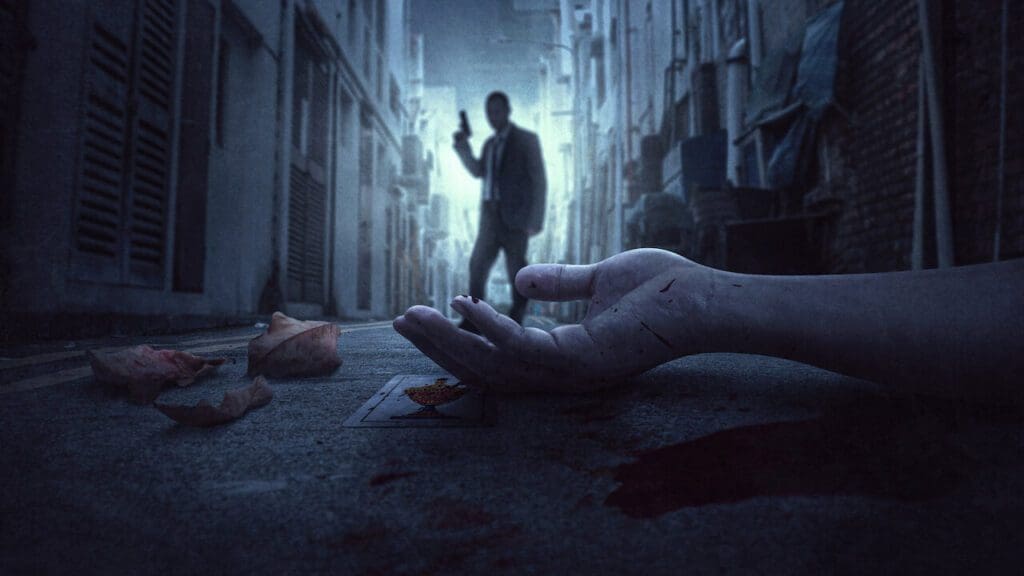Summary
Every element we’ve come to expect from a Netflix-branded true crime documentary features on The Playing Card Killer. We even get the obligatory alternate theories to what happened in the early 2000s in Spain’s capital.
Here is our review of the Netflix true crime series The Playing Card Killer, which was released on June 9th, 2023.
With the rise of streaming networks, true crime found prominence among mainstream audiences. Netflix’s addition to the genre is the Spanish mini-series The Playing Card Killer (original title: El Asesino de la Baraja).
The three-episode documentary series directed by Luis E. Herrero tells the chilling story of one of Spain’s most prominent serial killers who struck fear in the hearts of Madrid’s residents during his 2003 reign of terror.
The Playing Card Killer Review and Plot Summary
Netflix’s true crime documentaries grab the viewer’s attention and keep them glued to the screen. The Playing Card Killer is no different as it starts with a reconstructed dramatization of a man exiting his car. As the in-car radio is playing a news segment about the 2003 Iraq war, he shoots and kills his victim.
It was early February 2003; the victim was Juan Carlos Martin Estacio. The killer had left an ace of spades at the scene, inflaming media interest in the case.
That very same day, he walked into a bar and claimed the lives of Mikel Jimenez Sanchez and Juana Dolores Uclés. Mikel’s mother, Teresa, survived the brutal attack and is featured in the series.
A month later, he tried to take the lives of Eduardo Salas and Anahid Castillo Ruperti. The former survived. His final victims were a Romanian couple named Gheorgi and Diona Magda. Of course, the calling cards were left behind at all these crime scenes.
Later on, the investigation connected the killer with the murder of Juan Carols Martin Estacio, a security guard who left behind a wife and child (with both appearing and telling their side of the story).
In July that same year, Alfredo Galán walks into a police station while under the influence and confesses to the murders. After sobering up, the former soldier recanted his story. But he was ultimately convicted to 142 years in prison.
Each episode centers on a different facet of the case. We learn about the killings and the victims, and we even get a small glimpse into the long-term effects Galán had on their lives.
As the last episode centers on the murderer’s life, the producers brought in people who crossed paths with him briefly and gave them the limelight. That’s because the man’s actual family and friends refused to participate.
Every element we’ve come to expect from a Netflix-branded true crime documentary features on The Playing Card Killer. We even get the obligatory alternate theories to what happened in the early 2000s in Spain’s capital. Sadly, the case the series makes for its new theories is as weak as it gets.
Is the true crime series The Playing Card Killer good or bad?
This is a relatively well-made docuseries. It uses the tried and tested true crime genre style of editing that made the likes of Making a Murderer into viral sensations.
Is the true crime series The Playing Card Killer worth watching?
If you’re interested in true crime docuseries, you’ll probably find this one worth watching. It’s a grim recollection of one of Madrid’s darkest years.
What did you think of the Netflix true crime series The Playing Card Killer? Comment below.



